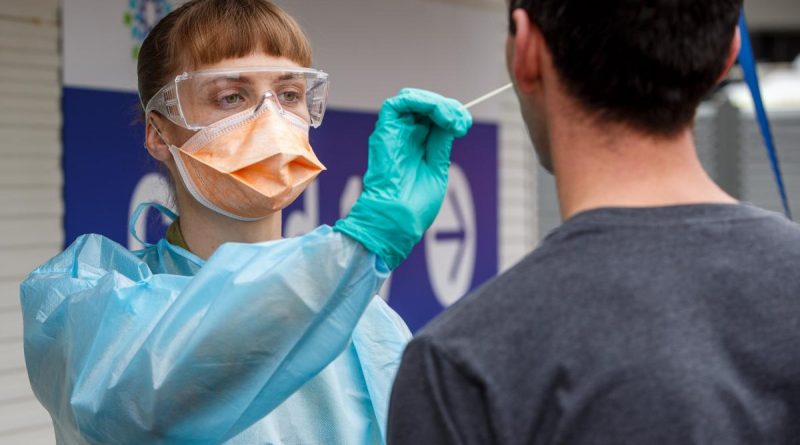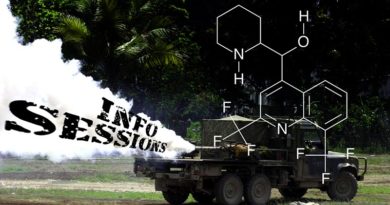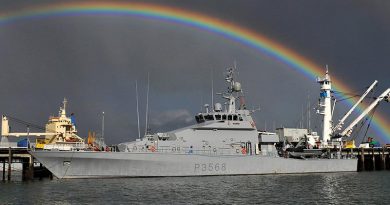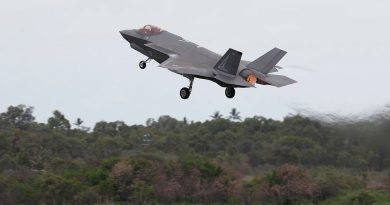Operation COVID-19 Assist officially ends

Australian Defence Force’s contribution to the national response to COVID-19 officially concluded today, marking the official end of Operation COVID-19 Assist.
FILE PHOTO (November 2021): Lieutenant Mia Parsons, of the 1st Close Health Battalion, takes a COVID test sample from a member of the public at the Goulburn Valley Health COVID testing site in Shepparton, Victoria. Story by Major Fiona Bickerstaff. Photo by Private Dustin Anderson.
Since Operation COVID-19 Assist began, there has been more than 19,000 Navy, Army, Air Force and Defence-civilian personnel deploy under its auspices to support a raft of initiatives across the nation and our region.
Across more than 26,000 deployments, personnel undertook medical responses, critical quarantine measures, compliance management, testing, the vaccine rollout and assistance to those most vulnerable to the effects of the virus.
Personnel were integrated into a wide variety of duties during Operation COVID-19 Assist including supporting border checkpoints and compliance, administering quarantine hotels and facilities, assisting aged care facilities and supporting Ambulance Victoria.
Personnel also supported swab testing and vaccination efforts at hubs across all states and territories, and critically, assisted critical supply-chain management.
Overview of ADF support under Operation COVID-19 Assist
- From March 2020 – October 2022 more than 19,000 ADF personnel conducted more than 26,000 deployments nationally.
- 519 Defence civilians provided support to the national COVID-19 response.
Key national support provided:
- Support to the National Supply Chain Task Force with the Department of Home Affairs from March 2020 – May 2022
- Support to the Department of Health including:
- Reception and processing of repatriation flights of vulnerable Australians through RAAF Base Darwin
- Planning and coordination support to the National Vaccine Operations Centre
- Clinical and generalist assistance to residential aged care, which saw more than 540 facilities supported up until 30 September 2022
- Logistics expertise to support management of the national medical stockpile
- Epidemiologist support
- Facilitation of contingency planning and operational decision-making workshops with the States and territories for subsequent variant outbreaks
- COVID-19 response teams
- Scientific expertise to assist with biomedical research.
Support to the Department of Infrastructure including:
- Planning support to the International Freight Assistance Mechanism.
- Support to the Department of Education, Skills and Employment including:
- Planning support for the recommencement of international student arrivals
- Support to the National Indigenous Australians Agency including:
– Planning and logistics support to remote indigenous communities
Support to the Department of Veterans Affairs
At a State and territory level, Defence provided support including:
- Personnel to assist police in compliance checking in all states and territories
- Personnel to assist with contact tracing
- Personnel to assist police with border controls at main entry points at all national, State and territory borders
- Personnel to provide quarantine assistance for international and domestic travellers in all States and the ACT
- Personnel support at the Centre of National Resilience at Howard Springs in the Northern Territory
- Support to public COVID-19 swab testing at State- and territory-managed testing locations
- Support to the administering of vaccines to the public
- Driver support to Ambulance Victoria, which saw a peak of 150 personnel on 27 July 2020.
Deputy Prime Minister Richard Marles said the government was extremely proud of Defence’s response to the pandemic, which tested the resilience of all those involved.
“As it did during the outbreak of Spanish influenza more than a century ago, the Australian Defence Force rose to the challenge imposed by COVID-19, offering a significant capability to deal with the impacts of the disease,” Mr Marles said.
“Defence personnel enhanced services, provided relief to organisations under pressure, increased the effectiveness and speed of the national response and, importantly, provided reassurance to a concerned public.
“I thank our Defence personnel for their commitment, compassion, patience and professionalism during one of the most challenging periods in Australia’s contemporary history.”
.
.

.
.





